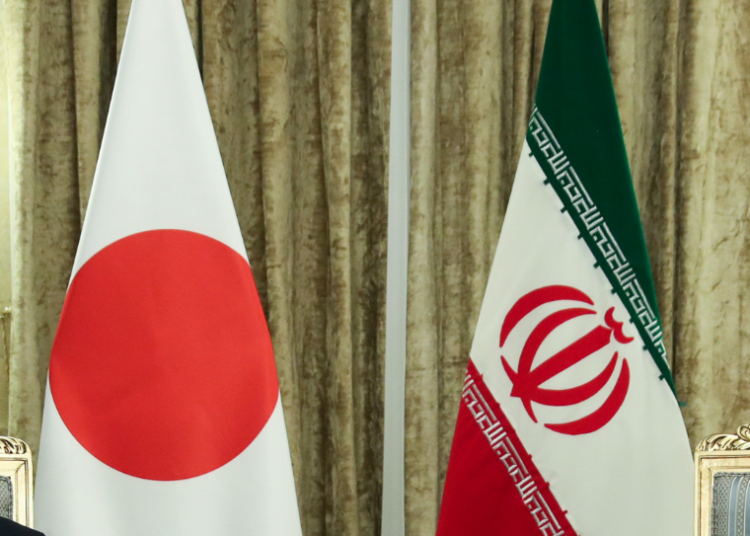Reports emerged today from Japanese media, hinting at the imminent visit of Iran’s Foreign Minister, Hossein Amirabdollahian, to Tokyo this coming Sunday. It is anticipated that meetings with both the Japanese Foreign Minister Hayashi Yoshimasa and Prime Minister Fumio Kishida will feature prominently in the diplomatic itinerary. Unnamed officials, referenced by TBS channel, intimate that the Tokyo visit is likely to cast a spotlight on the ongoing conflict in Ukraine and urge Iran to refrain from pledging weaponry to Russia.
An Iranian source, talking to Iran Nuances, confirmed the diplomatic visit in the “near future”. Responding to a query about the visit’s agenda, the source, while seeking anonymity, underscored that areas of conversation are set to include “bilateral cooperation, consultations on international developments, and the topic of sanctions lifting”.
The annals recall a telephonic interaction on April 12, 2023, between Amirabdollahian and Yoshimasa. Their conversation, brushing upon prospects for bilateral cooperation expansion and update on sanctions-easing negotiations in Vienna, culminated in Yoshimasa extending an invitation to his Iranian counterpart for a Tokyo visit.
Traveling back little more in time, we note the extensive three-hour discussion between Ali Bagheri Kani, Iran’s top negotiator and deputy foreign minister, and Yamada Shigeo, Japan’s senior deputy minister for foreign affairs, in Tehran, just four days prior to the aforementioned phone call.
Navigating opposition from western powers and erratic global conditions, persistently, yet with grand nuance, Tehran and Tokyo have succeeded in preserving a minimal degree of relations. Japan, itself closely aligned with the US, appears to have carefully walked the tightrope of maintaining Iranian relations, striking a contrast with South Korea’s stance. Fiscally, this has materialized conspicuously in the context of debt settlements derived from prior Iranian oil imports. Hence, a key topic that the Iranian foreign minister might broach in Tokyo could revolve around enhancing bilateral relations or conserving the current status quo, at the very least.
Characteristically, the international conundrum that is Ukraine war is oft-debated around the diplomatic tables worldwide, and meetings involving Iran’s Foreign Minister and high-ranking Japanese officials seem no exception to this rule. The West’s accusations of Iran supplying drones to Russia have intensified the discourse scope, a point highlighted by Japanese media. However, the precise nature of the conversation, alongside its tonality, still remains under the lens of scrutiny.
Within the sanctions-lifting discussions between Iran and Japan, one envisages two scenarios. The first scenario presumes that Japan solicits an exemption from US sanctions needed for Iranian oil imports, currently a non-starter and not envisaged. In the second hypothetical, Japan assumes the role of mediator between Iran and the United States, attempting to broker an agreement of any form. Notably, Tokyo has demonstrated its inclination to play conciliator in past interactions between Washington and Tehran.
Lastly, reminiscing on the visit of the late Prime Minister of Japan, Shinzo Abe, to Tehran in June 2019, one recalls that his intention at the time was nudging the divergent views on the return to the nuclear agreement closer together. This historical context provides a backdrop that aids in understanding the upcoming intricacies of this diplomatic engagement.
Japanese government, with its intrinsic ties to Washington and trust constructed diplomatically with Tehran, is often posited in the unique nexus, enabling Japan to occasionally foray into the tricky waters of mediation between the US and Iran. Presently, under the leadership of their incumbent Prime Minister, Fumio Kishida, Japan seems to be contemplating leveraging this advantageous position, with the dual-pronged objective of easing the tensions between Iran and the United States, specifically relating to the Ukrainian crisis and the persisting nuclear issue.
Tehran has remained steadfast in its assertion that it has not supplied weapons to Russia for deployment in the Ukraine war, an issue it demonstrates been readiness to discuss, notably engaging with the Ukrainian side. In the annals of diplomacy, past instances have witnessed these matters being deliberated upon by Iranian and Ukrainian military and political experts.
Nuclear discussion, prisoner exchange and the release of a fraction of Iran’s frozen assets in certain countries have been tabled, utilizing Oman and Qatar as conduits. Despite considerable groundwork having been accomplished, the final agreement and its subsequent enactment have been impeded by the discrepancy between Tehran and Washington over the exact count of prisoners to be swapped.
Japan is setting sights on utilizing its diplomatically neutral position for mediation, standing as a guarantor and aiding the actualization of this arrangement. The degree to which Japan ascends to a prominent role within this setup and the realization of its efforts will hinge intimately on the forthcoming negotiations.






